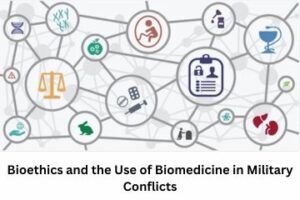National Medical Commission vs Mothukuru Sriyah Koumudi
Written by: Ms Devshree Dangi
The Supreme Court has ordered one of the medical colleges in Telangana to pay the compensation of Rs.10 lakhs for illegally denying admission to a deserving candidate and directed the medical college to grant admission to this candidate in the academic year of 2021-22.
Every year the National Medical Commission fix the intake capacity of students in medical colleges. Students prepare themselves for the National Eligibility cum Entrance Test and clear it for further admission process in medical colleges.
The rule is that if a student secures the top rank he or she gets admission to medical colleges and the rest of the students who secure the lower ranks again prepare for the same test that was conducted in the next academic year. This is a fixed process and no alteration can be made for even a single admission in medical colleges. It’s a process where if a student secures a top rank he or she will surely get admission to a medical college and this is their Right. They shouldn’t be deprived of this Right to get admission.
But what if a deserving student who studied well and secured top rank is deprived of his or her right to get admission to medical college? And what about the academic loss of the students facing such things done by the medical colleges?
Recently The Hon’ble Supreme Court held in the case of the National Medical Commission vs Mothukuru Sriyah Koumudi that the medical college in Telangana state has to pay the compensation of Rs.10 lakhs for illegally denying admission to a deserving candidate.
The Supreme Court is very much concerned about protecting the rights of the citizens of India as a Constitutional Court. And it can never consider such mistakes so I have asked the medical college of Telangana to compensate for illegally denying admission to the candidate within four weeks.
It was a matter in Telangana state where a candidate Mothukuru Sriyah Koumudi Secured a rank in the National Eligibility cum Entrance Test and applied for a post-graduation course in Surgery at the Kamineni Academy of Medical Sciences and Research Centre, Hyderabad.
The college granted her provisional admission and asked her to report to the college on July 29 or 30 by 4 PM. She visited the college with her parents but her admission process was not completed. And later a candidate who was below her on the merit list has granted admission.
After she was denied by the college for granting admission, she approached Telangana High Court against the college. The High Court of Telangana in a division bench directed the college to provide an additional seat to Koumudi.
After this order was passed by the Telangana High Court, the National Medical Commission has objected to it and said that an additional seat can’t be provided as per the rules.
The National Medical Commission approached the Supreme Court against this order passed by the High Court of Telangana.
The Hon’ble Supreme Court in a division bench of two judges Justice L Nageswara Rao and Justice Hemant Gupta agreed with the order passed by the High Court of Telangana and said that the college was really at fault for not completing the admission formalities.
“The manner in which Respondent No.2-College acted in depriving admission to Respondent No.1 and giving admission to Respondent No.5 s deplorable. The management of the medical colleges are not expected to indulge in such illegalities in making admissions to medical courses,” the court said in its judgment” the Supreme Court stated.
Though the medical colleges are not expected to be involved in such illegality in making admissions to medical colleges. But the annual intake capacity for admissions to the medical colleges can’t be either altered or reduced. The High Court wasn’t right in directing the college to create an additional seat for the respondent. Such orders cannot be passed by any court for directing the medical college to create an additional seat for even a single admission. The admissions in medical colleges already adhere to the given limits as per the National Medical Commission. So that such orders can’t be avail by either the superior or the lower Courts.
The Hon’ble Supreme Court has further stated that the additional seats cannot be provided as the High Court of Telangana ordered.
“The annual intake capacity is fixed by the MCI (now National Medical Commission) which has to be strictly adhered” the Supreme Court stated.
The Supreme Court added that admissions in medical colleges cannot be permitted to take place beyond the fixed annual intake capacity of a medical college.
Though, in the favor of Koumudi, the Supreme Court ordered that she will be granted admission in the next academic year.
“One seat in MS (General Surgery) course from the Management Quota of the concerned medical college for the next academic year (2021-22) shall be granted to the appellant,” Supreme Court ordered.
The Hon’ble Supreme Court has further stated “Respondent No.2-College adopted unfair means to deprive Respondent No.1 admission to PG course. Respondent No.1 has lost one precious academic year for no fault of hers for which she has to be compensated by way of an amount of Rs.10 Lakhs to be paid by Respondent No.2- College within a period of four weeks from today. Furthermore, Respondent No.1 is entitled to admission to the MS (General Surgery) course in the next academic year 2021-22 and shall be given admission in a seat allocated to Respondent No.2-College.”
And with this order Supreme Court again proved that the Rights of the citizens of India are well protected and no one can deprive anyone of their Rights. Although, the candidate didn’t get admission this year because the Supreme Court was bound to not order to direct the medical college to create an additional seat for the admission. But The Supreme Court gave assurance to her that she will get admission in the academic year of 2021-22 and directed the medical college to pay her the compensation for illegally denying her admission.
Previous Posts
Environmental Impact Assessment in India
Privatization Of Natural Resources: A Critical Threat To Sustainable Development
A Socio-legal study of the rights of traditional forest dwellers
Autism; A Socio-Legal Study On Mental Health Care Laws In India




